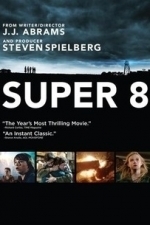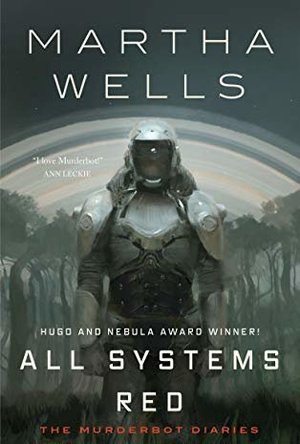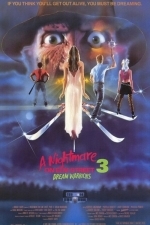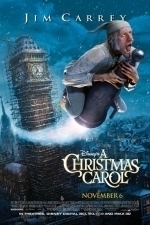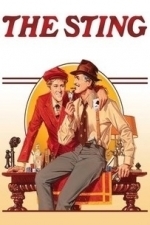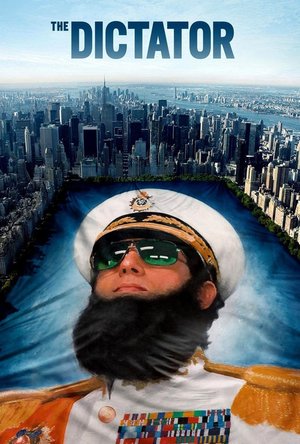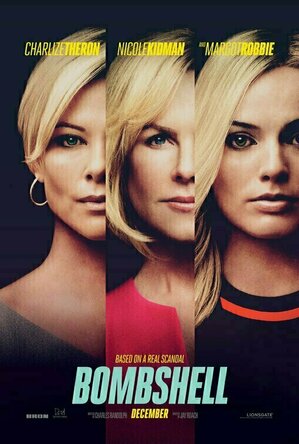Search
Search results
Gareth von Kallenbach (980 KP) rated Super 8 (2011) in Movies
Aug 7, 2019
Writer/Director/Producer JJ Abramas is one of film and televisions hottest talents. With credits that include Lost, Fringe, Alias, “Mission Impossible 3“, “Cloverfield“, and “Star Trek” on his resume and several projects in the works, Abrams is one of the shining young talents in Hollywood.
For his new film “Super 8” Abrams uses a small Ohio town in the summer of 1979 to set the stage for his tale about a group of friends who while shooting a zombie film project make a discovery that will shake the foundation of their rural community.
Following the tragic death of his mother in a mill accident, Joe Lamb (Joel Courtney), is deep in dispair over his loss. His father deputy Lamb (Kyle Chandler), is focused on his work and with this own grieving that he has no time to bond with his son.
When summer break arrives deputy Lamb thinks that Joe would be better off spedning a few weeks at a baseball camp instead of associating with his friends and making what he believes is a stupid zombie film.
Wishing to stay with his friends, Joe works to help his friend Charles (Riley Griffiths), finish his Super 8 film for a contest by providing the makeup for the film. When the group of friends sneak out one evening to film scenes at a train platform they are thrilled to have a local girl named Alice (Elle Fanning), on board the production. Joe has long had interest in Alice and the fact that she has borrowed her fathers car to drive them despite having her license is a big plus.
The filming is going well when they notice a truck driving into the path of an oncoming train and setting off a spectacular derailment and series of explosions.
When the smoke clears the friends learn that the truck was driven by their high school biology teacher who warns them not to say a word as their lives as well as their families lives will be in danger .
The friends return to town and keep quiet about what they have seen even when the military shows up and is clearly hiding something from the local population. When a series of bizzare events start to unfold it becomes clear that something has escaped from the train wreckage, and it is something that the military will go to any lengths to recover and are not about to let anyone stand in their way.
Caught between the military and a creature on the loose, Joe and his friends must find a way to get to the truth and save their town and friends before its to late.
The film moves at a very steady pace that does not lend itself to an action film. The movie is a character driven film about the youngsters and their coming of age relationships with one another as they are faced with a situation beyond their comprehension.
There is a good amount of humor in the film and the youngcast does very well with one another. I especially liked the character of Cary (Ryan Lee), who is obsesses with explosives and blowing things up. He provided plenety of light moments in the film as did other cast members who brought humanity to their parts with their foibles like having a weak stomach in times of stress.
My biggest issue with the film was that as good as the cast was the pacing was to slow as there was not enough action and suspense to sustain the films premise. The reveal of the creature was fairly matter of fact and lacked any real tension or surprise.
The film also suffered from having the adults in the film for the most part come across as incompetant individuals which forced the children to take action.
While this can be overlooked, I think the film could have used some more action and suspense as well as a tighter transition and pacing to the films final act as it came across as all to familiar with very little in the way of suspense or thrills.
“Super 8” played out as JJ Abrams nostalgic homage to the Steven Spielberg (who produced the film) movies of his childhood which so clearly influenced him. I saw many elements of Spielberg directed or produced classic such as the shadowy authority figures, child heroes, and the sense of wonder and growing up that made such fims as “E.T”, “Close Encounters of the Third Kind”, “Gremlins” and “The Goonies” such beloved films.
That being said, “Super 8” is a fun and entertaining summer film that is enjoyable if not original. The nostalgic soundtrack and look of the era is captured well and provides for a pleasant summer distraction.
For his new film “Super 8” Abrams uses a small Ohio town in the summer of 1979 to set the stage for his tale about a group of friends who while shooting a zombie film project make a discovery that will shake the foundation of their rural community.
Following the tragic death of his mother in a mill accident, Joe Lamb (Joel Courtney), is deep in dispair over his loss. His father deputy Lamb (Kyle Chandler), is focused on his work and with this own grieving that he has no time to bond with his son.
When summer break arrives deputy Lamb thinks that Joe would be better off spedning a few weeks at a baseball camp instead of associating with his friends and making what he believes is a stupid zombie film.
Wishing to stay with his friends, Joe works to help his friend Charles (Riley Griffiths), finish his Super 8 film for a contest by providing the makeup for the film. When the group of friends sneak out one evening to film scenes at a train platform they are thrilled to have a local girl named Alice (Elle Fanning), on board the production. Joe has long had interest in Alice and the fact that she has borrowed her fathers car to drive them despite having her license is a big plus.
The filming is going well when they notice a truck driving into the path of an oncoming train and setting off a spectacular derailment and series of explosions.
When the smoke clears the friends learn that the truck was driven by their high school biology teacher who warns them not to say a word as their lives as well as their families lives will be in danger .
The friends return to town and keep quiet about what they have seen even when the military shows up and is clearly hiding something from the local population. When a series of bizzare events start to unfold it becomes clear that something has escaped from the train wreckage, and it is something that the military will go to any lengths to recover and are not about to let anyone stand in their way.
Caught between the military and a creature on the loose, Joe and his friends must find a way to get to the truth and save their town and friends before its to late.
The film moves at a very steady pace that does not lend itself to an action film. The movie is a character driven film about the youngsters and their coming of age relationships with one another as they are faced with a situation beyond their comprehension.
There is a good amount of humor in the film and the youngcast does very well with one another. I especially liked the character of Cary (Ryan Lee), who is obsesses with explosives and blowing things up. He provided plenety of light moments in the film as did other cast members who brought humanity to their parts with their foibles like having a weak stomach in times of stress.
My biggest issue with the film was that as good as the cast was the pacing was to slow as there was not enough action and suspense to sustain the films premise. The reveal of the creature was fairly matter of fact and lacked any real tension or surprise.
The film also suffered from having the adults in the film for the most part come across as incompetant individuals which forced the children to take action.
While this can be overlooked, I think the film could have used some more action and suspense as well as a tighter transition and pacing to the films final act as it came across as all to familiar with very little in the way of suspense or thrills.
“Super 8” played out as JJ Abrams nostalgic homage to the Steven Spielberg (who produced the film) movies of his childhood which so clearly influenced him. I saw many elements of Spielberg directed or produced classic such as the shadowy authority figures, child heroes, and the sense of wonder and growing up that made such fims as “E.T”, “Close Encounters of the Third Kind”, “Gremlins” and “The Goonies” such beloved films.
That being said, “Super 8” is a fun and entertaining summer film that is enjoyable if not original. The nostalgic soundtrack and look of the era is captured well and provides for a pleasant summer distraction.
Jordan Binkerd (567 KP) rated All Systems Red (The Murderbot Diaries, #1) in Books
Aug 8, 2019 (Updated Aug 9, 2019)
Hilariously cynical and sarcastic narrator (2 more)
Bleak and dystopian universe
Complex characters and worldbuilding
An excellent novella
Meet Murderbot. Nobody else calls it that, of course - to most of the stupid humans it has to interact with, it’s just the security unit that the company made them bring along as part of the contract to safeguard the investment. But whereas most SecUnits are slaves to the central AI running whatever shoddy equipment the company sent along, Murderbot (as it thinks of itself) has hacked its own governor unit and can ignore whatever orders it wants, freeing it to stand around listlessly guarding stupid humans from dangers that are mostly non-existant as long as nobody does anything too moronic, devoting most of its energy to watching the terrabytes of serials that it downloaded from the entertainment feed last time they made contact. When things start to go wrong, initially it seems like just business as usual - life is cheap, and the contract for this equipment all went to the lowest bidder. But as incidents start to pile up, even Murderbot has to admit someone is trying to kill its humans. Even worse? Murderbot seems to have accidentally started to care about them…. Crap. It’s going to have to actually put in some effort this time around, isn’t it?
To put it simply, this is the best book I’ve read in quite a while. The entire thing is narrated by the extremely sarcastic, introverted, and misanthropic Murderbot, which makes for maybe the most engaging narrator since Harry Dresden. Don’t believe me? Read the first several pages on TOR's website. You know that thing with Charles Dickens where everything would be terribly depressing without his tongue-in-cheek style to bring the humor, rendering it impossible to abridge? No? I’m the only one to notice that? Oh well, moving on. This is like that - a dystopian wasteland of a society that is expanding across the cosmos using crappy low-budget equipment that’s liable to stop working on you when you most need it - to the point where it takes multiple incidents before the protagonists conclude that this isn’t business as usual. There’s also the moral ambiguity of the slavery-in-all-but-name of the Constructs that form the backbone of the labor force - sentient, at least without the governor unit, but forced to follow every whim of the humans they’re assigned to, even if those humans get bored and force them into gladiatorial combat or some such. These Constructs are described as androids, but are more accurately clone-based cyborgs fitted out for whatever task they’ll be doomed to for their term of service; part mechanical hardware, part expendable and easily-regrown meat, genderless and sexless unless designated for….that. And Murderbot? Murderbot just wants to be left alone, yet is a surprisingly deep and compelling character with a tragic backstory and motivations that are deceptively noble given its internal dialogue. Even its self-given name deserves a second look by the end of the book. I cannot recommend this book enough. And it’s a short read, clocking in at right about a hundred and fifty pages, technically more of a novella than a full-fledged novel. Now I just have to wait for whoever has the second book checked out from the library to give it back….
CONTENT: Some violence, not too gruesomely described. Some sexual references, including offhand mentions that some of the characters are in relationships that would be far outside the norm today (one character is said to have three romantic partners waiting together at home for them, for example). Murderbot also makes disparaging references to pleasurebots, but nothing explicit. Occasional R-rated profanity, but not too gratuitous.
To put it simply, this is the best book I’ve read in quite a while. The entire thing is narrated by the extremely sarcastic, introverted, and misanthropic Murderbot, which makes for maybe the most engaging narrator since Harry Dresden. Don’t believe me? Read the first several pages on TOR's website. You know that thing with Charles Dickens where everything would be terribly depressing without his tongue-in-cheek style to bring the humor, rendering it impossible to abridge? No? I’m the only one to notice that? Oh well, moving on. This is like that - a dystopian wasteland of a society that is expanding across the cosmos using crappy low-budget equipment that’s liable to stop working on you when you most need it - to the point where it takes multiple incidents before the protagonists conclude that this isn’t business as usual. There’s also the moral ambiguity of the slavery-in-all-but-name of the Constructs that form the backbone of the labor force - sentient, at least without the governor unit, but forced to follow every whim of the humans they’re assigned to, even if those humans get bored and force them into gladiatorial combat or some such. These Constructs are described as androids, but are more accurately clone-based cyborgs fitted out for whatever task they’ll be doomed to for their term of service; part mechanical hardware, part expendable and easily-regrown meat, genderless and sexless unless designated for….that. And Murderbot? Murderbot just wants to be left alone, yet is a surprisingly deep and compelling character with a tragic backstory and motivations that are deceptively noble given its internal dialogue. Even its self-given name deserves a second look by the end of the book. I cannot recommend this book enough. And it’s a short read, clocking in at right about a hundred and fifty pages, technically more of a novella than a full-fledged novel. Now I just have to wait for whoever has the second book checked out from the library to give it back….
CONTENT: Some violence, not too gruesomely described. Some sexual references, including offhand mentions that some of the characters are in relationships that would be far outside the norm today (one character is said to have three romantic partners waiting together at home for them, for example). Murderbot also makes disparaging references to pleasurebots, but nothing explicit. Occasional R-rated profanity, but not too gratuitous.
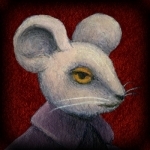
The Nutcracker Musical Storybook
Book and Entertainment
App
Join Clara and The Nutcracker Prince in a fully animated, cinematic storybook adventure of the...
Matthew Krueger (10051 KP) rated A Nightmare on Elm Street 3: Dream Warriors (1987) in Movies
Jul 3, 2020 (Updated Jul 3, 2020)
The introduction of funny Freddy (2 more)
Welcome to primetime, bitch!
Death Scene's
Welcome to primetime, bitch!
Contains spoilers, click to show
A Nightmare on Elm Street 3: Dream Warriors- is a excellent movie, coming off the disappointed Freedy's Revenge, Dream Warriors goes back to the oringal formula, Scary, twisted, dramatic and excellent deaths. Dream Warriors adds more like taking place psychiatric ward, a excellent line that was on the spot, "Welcome to primetime, bitch!". Also Heather Langenkamp and John Saxton return. Also you new charcters that will return in later sequels like Kristen, Kincaid and Joey. A great cast of charcters, a great story and also introduces Freddy's mom and her back story and adds more to Freddy's back story.
Lets talk more: production and deaths.
Production:
Craven's very first concept for the film was to have Freddy Krueger invade the real world: Krueger would haunt the actors filming a new Nightmare on Elm Street sequel. New Line Cinema rejected the metacinematic idea, but years later, Craven's concept was brought to the screen in Wes Craven's New Nightmare.
Before it was decided what script would be used for the film's story, both John Saxon and Robert Englund wrote their own scripts for a third Nightmare film; in Saxon's script called How the Nightmare on Elm Street All Began, which would have been a prequel story, Freddy would ultimately turn out to have been innocent, or at least set up for the murders by Charles Manson, who along with his followers would have been the main culprit of the murders; Freddy would be forced by the mob of angry parents to make a confession of the crimes, which would enrage them further. After they lynch Freddy, he comes back to avenge his wrongful death by targeting the parent's children.
In Englund's treatment called Freddy's Funhouse, the protagonist would have been Tina Gray's older sister, who would have been in college by the time Tina was murdered, and ends up coming back to Springwood to investigate how she died. In the script, Freddy had claimed the 1428 Elm Street house for his own in the dreamworld, setting up booby traps like Nancy did against him.
The death scenes: I love the death scene's in this film. Their are both memorable and excellent and probley my favorite out of all the franchise. You have Phillip's death: Veins pulled out/manipulated into falling off high ledge by Krueger, Jennifer's death: Head smashed into TV screen, Taryn death: Leg slashed with bladed glove, massive amounts of heroin injected into veins and Freddy saying "let's get high", William's death: Lifted, chest impaled with bladed glove and Freddy saying " Sorry kid, but I don't believe in fairy tales", Donald's death: Thrown/impaled through back on car's tail fin by a skeleton verison of krueger and Nancy's death: Stomach impaled twice/gutted with bladed glove/bled out, in dream world cause she sees her dad but its krueger. Also you have the Freddy worm that attacks Kristen.
The plot: During a hallucinatory incident, young Kristen Parker (Patricia Arquette) has her wrists slashed by dream-stalking monster Freddy Krueger (Robert Englund). Her mother, mistaking the wounds for a suicide attempt, sends Kristen to a psychiatric ward, where she joins a group of similarly troubled teens. One of the doctors there is Nancy Thompson (Heather Langenkamp), who had battled Freddy some years before. Nancy senses a potential in Kristen to rid the world of Freddy once and for all.
Dream Warriors: is a return to the oringal formula, and adds more. Adds memorable lines, better deaths, intoduction of comedy side of Freddy and above all a excellent movie.
The ending is sad cause Nancy and John doe die by freedy but it ends their story for now and starts a new story with Kristen, Kincaid and Joey. Its a percent, but sad ending. Ending the oringal maim charcters arc/story, while senting up a new trio of charcters.
Also you can't forget about that excellent theme song, "Dream Warrors" by Dokken.
Lets talk more: production and deaths.
Production:
Craven's very first concept for the film was to have Freddy Krueger invade the real world: Krueger would haunt the actors filming a new Nightmare on Elm Street sequel. New Line Cinema rejected the metacinematic idea, but years later, Craven's concept was brought to the screen in Wes Craven's New Nightmare.
Before it was decided what script would be used for the film's story, both John Saxon and Robert Englund wrote their own scripts for a third Nightmare film; in Saxon's script called How the Nightmare on Elm Street All Began, which would have been a prequel story, Freddy would ultimately turn out to have been innocent, or at least set up for the murders by Charles Manson, who along with his followers would have been the main culprit of the murders; Freddy would be forced by the mob of angry parents to make a confession of the crimes, which would enrage them further. After they lynch Freddy, he comes back to avenge his wrongful death by targeting the parent's children.
In Englund's treatment called Freddy's Funhouse, the protagonist would have been Tina Gray's older sister, who would have been in college by the time Tina was murdered, and ends up coming back to Springwood to investigate how she died. In the script, Freddy had claimed the 1428 Elm Street house for his own in the dreamworld, setting up booby traps like Nancy did against him.
The death scenes: I love the death scene's in this film. Their are both memorable and excellent and probley my favorite out of all the franchise. You have Phillip's death: Veins pulled out/manipulated into falling off high ledge by Krueger, Jennifer's death: Head smashed into TV screen, Taryn death: Leg slashed with bladed glove, massive amounts of heroin injected into veins and Freddy saying "let's get high", William's death: Lifted, chest impaled with bladed glove and Freddy saying " Sorry kid, but I don't believe in fairy tales", Donald's death: Thrown/impaled through back on car's tail fin by a skeleton verison of krueger and Nancy's death: Stomach impaled twice/gutted with bladed glove/bled out, in dream world cause she sees her dad but its krueger. Also you have the Freddy worm that attacks Kristen.
The plot: During a hallucinatory incident, young Kristen Parker (Patricia Arquette) has her wrists slashed by dream-stalking monster Freddy Krueger (Robert Englund). Her mother, mistaking the wounds for a suicide attempt, sends Kristen to a psychiatric ward, where she joins a group of similarly troubled teens. One of the doctors there is Nancy Thompson (Heather Langenkamp), who had battled Freddy some years before. Nancy senses a potential in Kristen to rid the world of Freddy once and for all.
Dream Warriors: is a return to the oringal formula, and adds more. Adds memorable lines, better deaths, intoduction of comedy side of Freddy and above all a excellent movie.
The ending is sad cause Nancy and John doe die by freedy but it ends their story for now and starts a new story with Kristen, Kincaid and Joey. Its a percent, but sad ending. Ending the oringal maim charcters arc/story, while senting up a new trio of charcters.
Also you can't forget about that excellent theme song, "Dream Warrors" by Dokken.
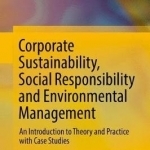
Corporate Sustainability, Social Responsibility and Environmental Management: An Introduction to Theory and Practice with Case Studies
Book
This book provides a concise and authoritative guide to corporate social responsibility (CSR) and...
Gareth von Kallenbach (980 KP) rated A Christmas Carol (2009) in Movies
Aug 9, 2019
The timeless classic A Christmas Carol by Charles Dickens has been one of the most beloved and adapted stories in history. There have been numerous movies, plays, radio, and television shows that have told the story for several generations as well as adapted films such as “Scrooged” and “Ghosts of Girlfriends Past” which were inspired by the timeless tale of redemption.
The latest version of the film was created by Director Robert Zemeckis (who also wrote the screenplay for the film.) and presents it with stunning 3D effects.
The clever use of animation based on motion capture of the actors brings a new and unique look and style to the film that makes it contemporary yet does not diminish the Victorian England setting of the story.
In case you are one of the few that are not familiar with the tale, the story centers on a miserly curmudgeon, named Ebenezer Scrooge (Jim Carrey), who is so tight with a penny that he keeps the coal in his office locked up, forcing his employee Bob Crachit (Gary Oldman), to make do with one tiny piece a day during the cold of winter.
Scrooge has no love for anyone or anything aside from his work, and he spends his life in working and dispensing venom for all those that dare come into his world.
When he is invited to Christmas dinner by his nephew Fred (Colin Firth), Scrooge declines the offer abruptly and berates his nephew about the pointless nature of Christmas and how it serves no purpose. As if he was just getting warmed up, Scrooge then unleashes his fury on a local charity and informs them that if the needy were to die, then perhaps there would be less surplus population in the world.
Alone in his home on Christmas Eve, Scrooge is visited by the ghost of his old associate Jacob Marley, (Gary Oldman), who passed away seven years earlier. Marley is bound by the long chains he created in his life, and warns Scrooge not to make the mistakes he did and that there is still time for him to find redemption.
Scrooge is visited by the ghosts of Christmas past, present, and future who take Scrooge on a journey through his life, and show him the folly of his ways, and offer him a second chance to lead a better life with caring and compassion to all.
The solid cast really shines and many play multiple roles in the film. Carrey gives a strong performance and manages to reign in his over the top energy during the more dramatic parts of the film, and lets it out where appropriate. He subtly infuses comedy into the story without it ever taking the focus from the story.
The 3D effects were a real treat and it truly seemed like it was snowing in the theater and the numerous shots of London were truly amazing. While some may see it as a more modern adaptation, I found the film to be very true to the story, and was not only very entertaining, but a version that even Scrooge himself would enjoy as this is a new holiday classic that sets the bar for future adaptations of the story to aspire to.
The latest version of the film was created by Director Robert Zemeckis (who also wrote the screenplay for the film.) and presents it with stunning 3D effects.
The clever use of animation based on motion capture of the actors brings a new and unique look and style to the film that makes it contemporary yet does not diminish the Victorian England setting of the story.
In case you are one of the few that are not familiar with the tale, the story centers on a miserly curmudgeon, named Ebenezer Scrooge (Jim Carrey), who is so tight with a penny that he keeps the coal in his office locked up, forcing his employee Bob Crachit (Gary Oldman), to make do with one tiny piece a day during the cold of winter.
Scrooge has no love for anyone or anything aside from his work, and he spends his life in working and dispensing venom for all those that dare come into his world.
When he is invited to Christmas dinner by his nephew Fred (Colin Firth), Scrooge declines the offer abruptly and berates his nephew about the pointless nature of Christmas and how it serves no purpose. As if he was just getting warmed up, Scrooge then unleashes his fury on a local charity and informs them that if the needy were to die, then perhaps there would be less surplus population in the world.
Alone in his home on Christmas Eve, Scrooge is visited by the ghost of his old associate Jacob Marley, (Gary Oldman), who passed away seven years earlier. Marley is bound by the long chains he created in his life, and warns Scrooge not to make the mistakes he did and that there is still time for him to find redemption.
Scrooge is visited by the ghosts of Christmas past, present, and future who take Scrooge on a journey through his life, and show him the folly of his ways, and offer him a second chance to lead a better life with caring and compassion to all.
The solid cast really shines and many play multiple roles in the film. Carrey gives a strong performance and manages to reign in his over the top energy during the more dramatic parts of the film, and lets it out where appropriate. He subtly infuses comedy into the story without it ever taking the focus from the story.
The 3D effects were a real treat and it truly seemed like it was snowing in the theater and the numerous shots of London were truly amazing. While some may see it as a more modern adaptation, I found the film to be very true to the story, and was not only very entertaining, but a version that even Scrooge himself would enjoy as this is a new holiday classic that sets the bar for future adaptations of the story to aspire to.
BankofMarquis (1832 KP) rated The Sting (1973) in Movies
Mar 29, 2020
On my list of All Time Favorite Films
I'll come right out and say it - the 1973 Academy Award winning film for Best Picture, THE STING, is one of the greatest films of all time. It's well written, well acted, well directed with a memorable musical score and characters, situations, costumes and set design that become richer over time and through repeated viewings.
Set in Chicago in the gangster-ridden, depression era mid-1930's, THE STING tells the tale of two con man who join forces for the ultimate con of a vile N.Y. Gangster who is responsible for killing a friend of theirs.
From everything I have read about it, the script by David S. Ward (who won an Oscar for his work) arrived pretty much finished. He shaped the story of the con men - and the myriad pieces of misdirection - fully before shopping it around to the studios. Universal jumped all over it and tabbed veteran Director George Roy Hill (BUTCH CASSIDY AND THE SUNDANCE KID) to helm the picture. Hill - being no dummy - saw this as a vehicle to re-team Newman and Redford (stars of Butch Cassidy) and the rest...as they say...is history.
Newman and Redford are perfectly cast as veteran grifter Henry Gondorff (Newman) and up and coming grifter Johnny Hooker (Redford). They have an ease of playing off of each other - each one complimenting the other one - both giving in their scenes with the other one which makes the scenes more rich and alive. They are joined by a veritable "who's who" of late '60's/early '70's character actors - Harold Gould, Eileen Brennan, Charles Durning, Ray Walston and Dana Elcar - all of them bring their "A" game and they are fun to watch. Special notice should be made to Robert Earl Jones (father of James Earl Jones) as Luther, the character who's fate propels the plot forward.
But...none of this would work if you didn't have a "bad guy" that was interesting to watch - and to root against - and bad guys don't get much better...and badder...than Robert Shaw's Doyle Lonnegan. Shaw plays Lonnegan as a physically tough boss who doesn't suffer failure, but is smart enough to avoid obvious traps. He is a worthy adversary of Gondorff and Hooker's and it is fun to watch Newman, Redford and Shaw play off each other. One other note - it was with this performance that Universal recommended Shaw to young Director Stephen Spielberg for his "shark flick" JAWS.
Edith Head won her 8th (and last) Oscar for the magnificent period costumes in this film and Marvin Hamlisch won for the Music - a surprising hit on the pop charts of re-channeled Scott Joplin tunes. The set design won an Oscar - as did the Director, George Roy Hill. All in all, the film won 7 out of the 11 Oscars it was nominated for (Redford was nominated for Best Actor, but did not win).
THE STING is a well crafted film. One that tells a timeless story and that stands the test of time as a testament of how great of an achievement in film this is. It is one of my All Time favorites.
Letter Grade: the rare A+
5 stars (out of 5) and you can take that to the Bank(ofMarquis)
Set in Chicago in the gangster-ridden, depression era mid-1930's, THE STING tells the tale of two con man who join forces for the ultimate con of a vile N.Y. Gangster who is responsible for killing a friend of theirs.
From everything I have read about it, the script by David S. Ward (who won an Oscar for his work) arrived pretty much finished. He shaped the story of the con men - and the myriad pieces of misdirection - fully before shopping it around to the studios. Universal jumped all over it and tabbed veteran Director George Roy Hill (BUTCH CASSIDY AND THE SUNDANCE KID) to helm the picture. Hill - being no dummy - saw this as a vehicle to re-team Newman and Redford (stars of Butch Cassidy) and the rest...as they say...is history.
Newman and Redford are perfectly cast as veteran grifter Henry Gondorff (Newman) and up and coming grifter Johnny Hooker (Redford). They have an ease of playing off of each other - each one complimenting the other one - both giving in their scenes with the other one which makes the scenes more rich and alive. They are joined by a veritable "who's who" of late '60's/early '70's character actors - Harold Gould, Eileen Brennan, Charles Durning, Ray Walston and Dana Elcar - all of them bring their "A" game and they are fun to watch. Special notice should be made to Robert Earl Jones (father of James Earl Jones) as Luther, the character who's fate propels the plot forward.
But...none of this would work if you didn't have a "bad guy" that was interesting to watch - and to root against - and bad guys don't get much better...and badder...than Robert Shaw's Doyle Lonnegan. Shaw plays Lonnegan as a physically tough boss who doesn't suffer failure, but is smart enough to avoid obvious traps. He is a worthy adversary of Gondorff and Hooker's and it is fun to watch Newman, Redford and Shaw play off each other. One other note - it was with this performance that Universal recommended Shaw to young Director Stephen Spielberg for his "shark flick" JAWS.
Edith Head won her 8th (and last) Oscar for the magnificent period costumes in this film and Marvin Hamlisch won for the Music - a surprising hit on the pop charts of re-channeled Scott Joplin tunes. The set design won an Oscar - as did the Director, George Roy Hill. All in all, the film won 7 out of the 11 Oscars it was nominated for (Redford was nominated for Best Actor, but did not win).
THE STING is a well crafted film. One that tells a timeless story and that stands the test of time as a testament of how great of an achievement in film this is. It is one of my All Time favorites.
Letter Grade: the rare A+
5 stars (out of 5) and you can take that to the Bank(ofMarquis)
Gareth von Kallenbach (980 KP) rated The Dictator (2012) in Movies
Aug 7, 2019
Sacha Baron Cohen is undoubtedly one of the most daring names in comedy recently. A Cambridge graduate, the comedian-actor who has starred in fairly controversial films “Bruno” and “Borat” returns with director Larry Charles in 2012’s “The Dictator”. What can be said about Cohen, over other contemporary comedians, is his absolutely excellent ability to inhabit a character role – both in and out of the film he is portrayed in. “The Dictator” is no exception to this, yet it might be the controversy regarding the Academy Awards snub that is remembered more than this film.
Cohen plays the hilariously named Admiral General Aladeen, a megalomaniacal dictator of a fictional oil-rich North African country named Waadeya. While on his trip to the UN to deliver a speech, he is thrown from his oppressive dictatorial role into that of a lost New Yorker, desperate to get back to his position as dictator. He meets others along the way to help him, namely Aasif Mandvi and Anna Farris.
The film’s plot is about as formulaic and basic as a comedy can get, simply serving as a vehicle to push from one joke to the next. If you were expecting any sort of compelling narrative, with jokes sprinkled throughout, then this movie will not be enjoyable. It completely rides upon its humor, which is both beneficial and detrimental. If the film at least attached you to particular characters other than Admiral General Aladeen then it might benefit more from its gags featuring multiple characters.
The real highlight of the film is Cohen’s consistent portrayal of this outrageous ruler. He is funny throughout; and even though he might be a horrible person with villainous qualities, he has a childish heart underneath. It is that mixture of qualities that makes for some very hilarious moments.
The actual jokes and gags themselves hold their own throughout. As mentioned, the film plods forward from one gag or joke to the next, with story simply setting up the scenes. Most of the jokes were grin worthy, and a handful of them were laugh-out-loud hilarious. Yet, overall I would not call it the funniest movie of the year. There’s a bit of everything in the movie. Sacha Baron Cohen’s trademark shocking and offensive humor will please the college moviegoers and his more clever witty humor will amuse older watchers. Yet, even the offensive humor appears to be more tame than his other movies’ most memorable moments. The whole film also deals heavily with contemporary political issues – specifically the power-obsessed dictators which have filled the news as of late. Cohen’s character pokes fun at both the absurdity of people like Colonel Ghadafi as well as the hangers-on who surround such people.
Overall, the movie maintains a consistent level of humor throughout. While that level of humor may remain at simply grin-level comedy, it still has a handful of laugh-out-loud moments. It might not be the funniest movie of the year, but it is by no means bad at what it does. A less formulaic plot would have benefited the movie’s gags by allowing other comedians in the movie to shine more. As it stands, it is a movie centered completely on Cohen’s comedy and held up by it as well. Not completely unlike the self-centered nature of his character, Admiral General Aladeen.
Cohen plays the hilariously named Admiral General Aladeen, a megalomaniacal dictator of a fictional oil-rich North African country named Waadeya. While on his trip to the UN to deliver a speech, he is thrown from his oppressive dictatorial role into that of a lost New Yorker, desperate to get back to his position as dictator. He meets others along the way to help him, namely Aasif Mandvi and Anna Farris.
The film’s plot is about as formulaic and basic as a comedy can get, simply serving as a vehicle to push from one joke to the next. If you were expecting any sort of compelling narrative, with jokes sprinkled throughout, then this movie will not be enjoyable. It completely rides upon its humor, which is both beneficial and detrimental. If the film at least attached you to particular characters other than Admiral General Aladeen then it might benefit more from its gags featuring multiple characters.
The real highlight of the film is Cohen’s consistent portrayal of this outrageous ruler. He is funny throughout; and even though he might be a horrible person with villainous qualities, he has a childish heart underneath. It is that mixture of qualities that makes for some very hilarious moments.
The actual jokes and gags themselves hold their own throughout. As mentioned, the film plods forward from one gag or joke to the next, with story simply setting up the scenes. Most of the jokes were grin worthy, and a handful of them were laugh-out-loud hilarious. Yet, overall I would not call it the funniest movie of the year. There’s a bit of everything in the movie. Sacha Baron Cohen’s trademark shocking and offensive humor will please the college moviegoers and his more clever witty humor will amuse older watchers. Yet, even the offensive humor appears to be more tame than his other movies’ most memorable moments. The whole film also deals heavily with contemporary political issues – specifically the power-obsessed dictators which have filled the news as of late. Cohen’s character pokes fun at both the absurdity of people like Colonel Ghadafi as well as the hangers-on who surround such people.
Overall, the movie maintains a consistent level of humor throughout. While that level of humor may remain at simply grin-level comedy, it still has a handful of laugh-out-loud moments. It might not be the funniest movie of the year, but it is by no means bad at what it does. A less formulaic plot would have benefited the movie’s gags by allowing other comedians in the movie to shine more. As it stands, it is a movie centered completely on Cohen’s comedy and held up by it as well. Not completely unlike the self-centered nature of his character, Admiral General Aladeen.

i-Boating: Nautical / Marine Charts & Fishing Maps
Navigation and Travel
App
This App offers access to Marine Charts for USA,Canada,UK/Ireland,Germany,Netherlands/Holland &...
BankofMarquis (1832 KP) rated Bombshell (2019) in Movies
Jan 31, 2020
Well acted - and important - film
The new Jay Roach film, BOMBSHELL - the Fox News sex scandal film - focuses on the struggles of 3 female protagonists - Gretchen Carlson (Nicole Kidman), Megyn Kelly (Charlize Theron) and Kayla Pospisil (Margot Robbie) - as they attempt to climb (or stay at the top of) the Corporate Ladder while battling sexism and a toxic work culture at Fox News. It is a powerful story that is a necessary tale in the "#MeToo" era that demands viewers to stand up and take notice.
And with powerhouse actresses leading this film - standing up and taking notice is an easy thing to do.
Based on factual events, BOMBSHELL portrays the sexism that female on air personalities encounter at FoxNews - a place filled with "good ol' boys" who patronize and sexualize the females in the office to the detriment of the females and the benefit and gratification of the males. Surprisingly, they are joined in this by some other females in the office who figure "better them than me". At the top of the office - and the toxic work culture - is Roger Ailes (an almost unrecognizable John Lithgow) who is hailed by Fox as the man who can create the news - and profits.
Kidman, Theron and Robbie are well cast in their roles, showing nuance, concern and strength as these negative conditions rear their ugly heads over and over again. All 3 produce powerhouse performances - certainly up there amongst the best of their careers - and Theron and Robbie are well deserved Oscar nominees for their performances. Kidman was NOT nominated for her performance, but she is just as deserving as the other two.
But, for me, the real surprise - and the best performance - of this film belongs to Lithgow's portrayal of Ailes. His characterization shows a real wolf, taking advantage of his status and position, to prey upon those in his office. It is a sly, evil performance of a sly, evil man. What impressed me the most is that this performance - and this character - could have easily gone "over the top" into "pure villain" territory and Lithgow resists this temptation - to the betterment of this film, but to the detriment of his Oscar chances.
As written by Charles Randolph (THE BIG SHORT) this film has a pacing/theming issue for the first 1/2 hour of this film. Is it a serious film? Is it sarcastic look at toxic masculinity work culture? Is it an indictment on our current society as a whole? Randolph's script uses some of the same tactics as THE BIG SHORT, having performers breaking the 4th wall and commenting and narrating the events while looking directly at the camera. While this tactic worked very well in THE BIG SHORT (if you haven't seen this film, I highly recommend you do), it works less well here and Director Jay Roach (TRUMBO) wisely drops that "gimmick" after the first 1/2 hour.
This film is filled with wonderful character actors making extended (and powerful) cameos. The likes of Kate McKinnon, Allyson Janney, Holland Taylor, Connie Britton, Stephen Root, Malcolm McDowell, Robin Weigert, Mark Duplass, Richard Kind, Mark Moses and Tricia Helfer all contribute greatly to the film while shining in the little screen time they have.
A necessary - and powerful - film filled with tremendous performances that shine a light on a problem that is pervasive today. Which makes this film a must watch - as difficult as it is to watch at times.
Letter Grade: A- (the first 1/2 hour brings it down a point)
8 stars (out of 10) and you can take that to the Bank(OfMarquis)
And with powerhouse actresses leading this film - standing up and taking notice is an easy thing to do.
Based on factual events, BOMBSHELL portrays the sexism that female on air personalities encounter at FoxNews - a place filled with "good ol' boys" who patronize and sexualize the females in the office to the detriment of the females and the benefit and gratification of the males. Surprisingly, they are joined in this by some other females in the office who figure "better them than me". At the top of the office - and the toxic work culture - is Roger Ailes (an almost unrecognizable John Lithgow) who is hailed by Fox as the man who can create the news - and profits.
Kidman, Theron and Robbie are well cast in their roles, showing nuance, concern and strength as these negative conditions rear their ugly heads over and over again. All 3 produce powerhouse performances - certainly up there amongst the best of their careers - and Theron and Robbie are well deserved Oscar nominees for their performances. Kidman was NOT nominated for her performance, but she is just as deserving as the other two.
But, for me, the real surprise - and the best performance - of this film belongs to Lithgow's portrayal of Ailes. His characterization shows a real wolf, taking advantage of his status and position, to prey upon those in his office. It is a sly, evil performance of a sly, evil man. What impressed me the most is that this performance - and this character - could have easily gone "over the top" into "pure villain" territory and Lithgow resists this temptation - to the betterment of this film, but to the detriment of his Oscar chances.
As written by Charles Randolph (THE BIG SHORT) this film has a pacing/theming issue for the first 1/2 hour of this film. Is it a serious film? Is it sarcastic look at toxic masculinity work culture? Is it an indictment on our current society as a whole? Randolph's script uses some of the same tactics as THE BIG SHORT, having performers breaking the 4th wall and commenting and narrating the events while looking directly at the camera. While this tactic worked very well in THE BIG SHORT (if you haven't seen this film, I highly recommend you do), it works less well here and Director Jay Roach (TRUMBO) wisely drops that "gimmick" after the first 1/2 hour.
This film is filled with wonderful character actors making extended (and powerful) cameos. The likes of Kate McKinnon, Allyson Janney, Holland Taylor, Connie Britton, Stephen Root, Malcolm McDowell, Robin Weigert, Mark Duplass, Richard Kind, Mark Moses and Tricia Helfer all contribute greatly to the film while shining in the little screen time they have.
A necessary - and powerful - film filled with tremendous performances that shine a light on a problem that is pervasive today. Which makes this film a must watch - as difficult as it is to watch at times.
Letter Grade: A- (the first 1/2 hour brings it down a point)
8 stars (out of 10) and you can take that to the Bank(OfMarquis)
